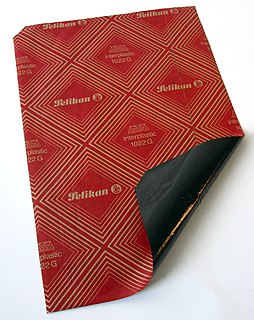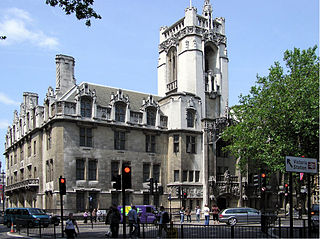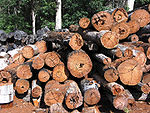Decision
The main decision of the court was delivered by Bridge LJ.

Nigel Cyprian Bridge, Baron Bridge of Harwich, PC was a British judge, who served as Lord of Appeal in Ordinary between 1980 and 1992. A leading appellate judge, Bridge is also remembered for having presided over the Birmingham Six trial.
He considered carefully the earlier decision of Aluminium Industrie Vaassen BV v Romalpa Aluminium Ltd [1976] 1 WLR 676 in relation to retention of title, and the decision in Re Hallett's Estate (1880) 13 Ch D 696 in relation to the right to trace.

Aluminium Industrie Vaassen BV v Romalpa Aluminium Ltd [1976] 1 WLR 676 is a UK insolvency law case, concerning a quasi-security interest in a company's assets and priority of creditors in a company winding up.

Re Hallett’s Estate (1880) 13 Ch D 696 is an English trusts law case, concerning asset tracing.

Tracing is a legal process, not a remedy, by which a claimant demonstrates what has happened to his/her property, identifies its proceeds and those persons who have handled or received them, and asks the court to award a proprietary remedy in respect of the property, or an asset substituted for the original property or its proceeds. Tracing allows transmission of legal claims from the original assets to either the proceeds of sale of the assets or new substituted assets.
He held that the process of working the resin destroyed that product, and the title of any person which was vested in it. Accordingly, the title which was retained under the agreement was extinguished. He went on to elaborate:
| “ | The lesson to be learned from these conclusions is a simple one. If the seller of goods to a manufacturer, who knows that his goods are to be used in the manufacturing process before they are paid for wishes to reserve to himself an effective security for the payment of the price, he cannot rely on a simple reservation of title clause such as that relied upon by the plaintiffs. If he wishes to acquire rights over the finished product, he can only do so by express contractual stipulation. [5] | ” |
Buckley LJ and Templeman LJ gave short concurring judgments. They added in their judgment that acquiring title in the worked product would generally result in the interest being treated as an equitable charge, which would be void if not properly registered under the Companies Act 1948 (now the Companies Act 2006).
Sir Denys Burton Buckley, MBE was an English barrister and judge, rising to become a Lord Justice of Appeal.

Sydney William Templeman, Baron Templeman, MBE, PC was a British judge. He served as a Lord of Appeal in Ordinary from 1982 to 1995.

The Companies Act 1948 was an Act of the Parliament of the United Kingdom, which regulated UK company law. Its descendent is the Companies Act 2006.

Engineered wood, also called composite wood, man-made wood, or manufactured board, includes a range of derivative wood products which are manufactured by binding or fixing the strands, particles, fibres, or veneers or boards of wood, together with adhesives, or other methods of fixation to form composite materials. These products are engineered to precise design specifications which are tested to meet national or international standards. Engineered wood products are used in a variety of applications, from home construction to commercial buildings to industrial products. The products can be used for joists and beams that replace steel in many building projects.

Sir Edward Fry (1827–1918), was a judge in the English Court of Appeal (1883–1892) and also an arbitrator on the Permanent Court of Arbitration. He was a Quaker, son of Joseph Fry (1795–1879) and Mary Ann Swaine.

Elmer's Products is an American-based company that has a line of adhesive, craft, home repair, and office supply products. It is best known as the manufacturer of Elmer's Glue-All, a popular PVA-based synthetic glue, in addition to other brands including Krazy Glue, ProBond adhesives, and X-Acto cutting tools. Since 2013, Elmer's Glu-All has been made from natural products, primarily corn.

Borden, Inc., was an American producer of food and beverage products, consumer products, and industrial products. At one time, the company was the largest U.S. producer of dairy and pasta products. Its food division, Borden Foods, was based in Columbus, Ohio, and focused primarily on pasta and pasta sauces, bakery products, snacks, processed cheese, jams and jellies, and ice cream. It was best known for its Borden Ice Cream, Meadow Gold milk, Creamette pasta, and Borden Condensed Milk brands. Its consumer products and industrial segment marketed wallpaper, adhesives, plastics and resins. By 1993, sales of food products accounted for 67 percent of its revenues. It was also known for its Elmer's Glue and Krazy Glue.

Re Atkinson, Barbers' Company v Grose-Smith [1904] 2 Ch 160 is an English trusts law case, which lays down a rule of equity relating to the disposition by the trustees of an authorised mortgage security where the security forms part of a trust fund, and the beneficiaries of the trust fund include a tenant for life and a remainderman. Where the security is sold and the proceeds are insufficient to satisfy the principal and interest in full, it is necessary to determine the way in which the loss shall be shared as between the tenant for life and the remainderman. The sum realised by the sale must be apportioned between the life tenant and the remainderman in the proportion that the amount due for the arrears of interest bears to the amount due in respect of principal.

Rose & Frank Co v JR Crompton & Bros Ltd [1924] UKHL 2 is a leading decision on English contract law, regarding the intention to create legal relations in commercial arrangements. In the Court of Appeal, Atkin LJ delivered an important dissenting judgment which was upheld by the House of Lords.

Southern Foundries (1926) Ltd v Shirlaw [1940] AC 701 is an important English contract law and company law case. In the field of contracts it is well known for MacKinnon LJ's decision in the Court of Appeal, where he put forth the "officious bystander" formulation for determining what terms should be implied into agreements by the courts. In the field of company law, it is known primarily to stand for the principle that damages may be sought for breach of contract by a director even though a contract may de facto constrain the exercise of powers to sack people found in the company's constitution.

Karsales (Harrow) Ltd v Wallis [1956] EWCA Civ 4 is an English Court of Appeal decision which established fundamental breach as a major English contract law doctrine. Denning LJ MR gave the leading judgment replacing the Rule of Strict Construction, which require a literal approach to the construction of contract terms.

Illingworth v Houldsworth [1904] AC 355 is a UK insolvency law case, concerning the taking of a security interest over a company's assets with a floating charge. In the Court of Appeal Romer LJ held that a key to a floating charge, as opposed to a fixed charge was that the company can carry on its business with assets subject to the charge.

Autoclenz Ltd v Belcher [2011] UKSC 41 is a landmark UK labour law and English contract law case decided by the Supreme Court of the United Kingdom, concerning the scope of statutory protection of rights for working individuals. It confirmed the view, also taken by the Court of Appeal, that the relative bargaining power of the parties must be taken into account when deciding whether a person counts as an employee, to get employment rights. As Lord Clarke said,
the relative bargaining power of the parties must be taken into account in deciding whether the terms of any written agreement in truth represent what was agreed and the true agreement will often have to be gleaned from all the circumstances of the case, of which the written agreement is only a part. This may be described as a purposive approach to the problem.

Re Bond Worth Ltd [1980] Ch 228 is a UK insolvency law case, concerning retention of title clauses.

Penalties in English law are contractual terms which are not enforceable in the courts because of their penal character. Since at least 1720 it has been accepted as a matter of English contract law that if a provision in a contract constitutes a penalty, then that provision is unenforceable by the parties. However, the test for what constitutes a penalty has evolved over time. The Supreme Court most recently restated the law in relation to contractual penalties in the co-joined appeals of Cavendish Square Holding BV v Talal El Makdessi, and ParkingEye Ltd v Beavis.

Royal Trust Bank v National Westminster Bank plc [1996] BCC 613 was a decision of the Court of Appeal in relation to the nature of a floating charge.

Re Curtain Dream plc [1990] BCLC 925 is a judicial decision of the English courts in relation to recharacterisation. It held that where a transaction was documented in a certain way to mask the true nature of the transaction, the court could disregard the mask and construe the transaction as it was intended to be in truth. The court held that properly construed the transaction in question was a mortgage which was void against a liquidator for non-registration.

Welsh Development Agency v Export Finance Co Ltd [1992] BCLC 148 is a judicial decision of the English Court of Appeal. The decision related to a number of aspects relating to complex financing arrangement, but is most often cited for the decision in relation to recharacterisation.

Re Peachdart Ltd [1984] Ch 131 is a judicial decision relating to retention of title clauses, and the extent to which the vendor of raw material can seek to assert title to good into which those raw materials are subsequently worked. The court held that seeking to assert title to the subsequently worked goods had the effect of creating an equitable charge, which was void for non-registration under the Companies Act.

Barclays Bank plc v Quincecare Ltd [1992] 4 All ER 363 is a judicial decision of High Court of Justice of England and Wales in relation to the banker-customer relationship, and in particular in connection with the bank's duties in relation to payment instructions which give rise, or ought to give rise, to a suspicion of fraud.





















